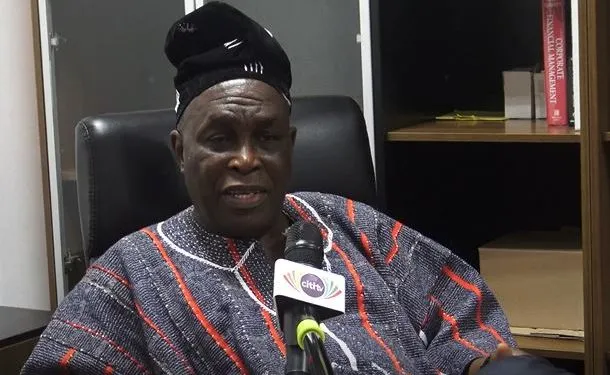Labour expert, Austin Akufo Gamey has said that the challenges at the Social Security and National Insurance Trust (SSNIT) gave birth to tier-two pensions scheme.
He says the loopholes in the Trust some years ago contributed to people’s mistrust in it, the reason they advocated for the tier-two for them, something he said they discovered when after being commissioned by President Kufuor to write Ghana’s pension scheme.
His comments come on the back of a revelation by the International Labour Organisation (ILO) that based on actuarial valuation, SSNIT reserves will be exhausted by 2036.
According to the ILO, total income including contributions, investment income and other income, will no longer be sufficient to pay for annual expenditures including benefit payments to pensioners by 2029.
“Starting in 2029, total income (contributions, investment income and other income) is no longer sufficient to pay for annual expenditures.
“The reserve starts to decrease. During the year 2036, the reserve drops to zero,” the research emphasised.
Speaking on Ghana Tonight Thursday, April 25, 2024, Mr. Gamey said the challenge people had with SSNIT “was part of the reasons why some people in the informal sector, particularly the market people, who were not willing to be part of SSNIT and they were part of the people who encouraged us to introduce the second tier so the introduction of the second tier came strongly from other sources other than organised labour.”
Although they asked SSNIT to maximise their efficiency after realising they wouldn’t be able to withstand the pressures of the economic turnaround, Mr. Gamey said the challenges have existed till date, constituting to the reason the Trust faces the potential bankruptcy.
“At the time we did the actuarial study, we realised that SSNIT will not be able to withstand the pressures of the economic turnarounds and therefore it was important for them to maximise their efficiency which has never been coming and government interference has been so severe so much so that, to date, SSNIT by the actuarial study brought by the other people other than ILO recently, clearly shows that; the first one was supposed to be ending by 2042 then it came down to 2036 and now eventually, by 2030, it means the funds may not be able to pay the people when they retire. So clearly, we have a herculean task on our hand especially from 2025 knowing how bad the economy is struggling now,” he explained.












